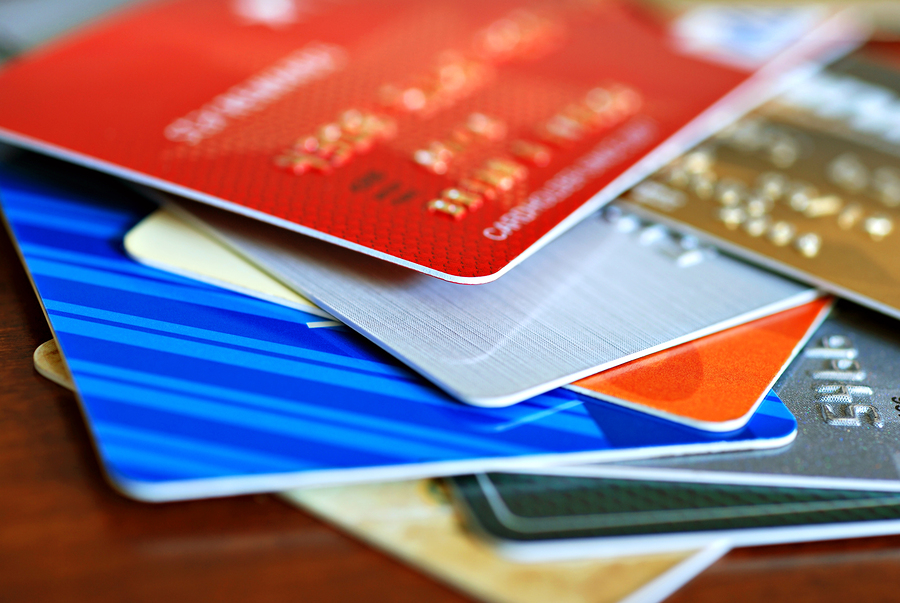 BACK UP PLAN: Keep those impulse buys in the trunk of your car for 24 hours
BACK UP PLAN: Keep those impulse buys in the trunk of your car for 24 hours
Right? How many times have you been caught up in the frenzy of a sale only to feel buyer’s remorse once you are on the way home? Did I really need that? Do I even like that color green? What was I thinking? But don’t worry. JenningsWire has some great tips, gleaned from money experts who know about this kind of thing, that share how to deal with accidentally getting yourself into financial trouble.
Look, it happens. It’s fun to buy everything when you are in the moment (the hustle, the bustle, the Holiday music, the gorgeous display of sparkle and shine, the slight scent of vanilla in the air . . . ), but it’s not so much fun (oops, I did it again!) when the bills come in next month, the high interest rate kicks in and your “I gotta have this thing” has totally lost its luster. So buy if you must, BUT, be sure to have a back up plan to only keep what you really love and/or need (and guess what? Soon you will find out a secret to financial happiness. It’s more fun to go to the mailbox and find NO BILLS than it is to buy stuff. That’s right, having no debt is more fun than shopping sprees. You gotta try it and see what I mean).
So why have a back up plan that kicks in when you have a pile of purchases that you accidentally bought?
“In the light of day, you might just want to take them back,” says Life & ADD Coach, Lynne Edris, ACG of Coaching ADDvantages, who works with clients on a daily basis helping them deal with or avoid financial mistakes. Lynne says “financial impulsivity or what I call ‘mindlessness’ (not being mindful about little things we do in the moment) often create bigger financial problems for my clients in the long run.” Below are a few tips Lynne Edris offers to help avoid accidental over-spending:
Re-think what you’re charging: If you carry a balance on your credit card bills each month, it may be time to re-think how you’re using your cards. Every single charge becomes, in essence, a bank loan. So ask yourself, “Is this something I would go to the bank and take out a loan for?” Not too many of us would walk into our local branch and take out a loan for pizza delivery!
Implement a 24-hour waiting policy: Impulsive spending can add up quickly and become a financial burden that leads to debt. If you’re a sucker for a sale or what looks like a good deal, abiding by the often-suggested rule of waiting 24-hours to make a purchase may not be very helpful. Instead, try the easier-to-live-by policy of leaving any unplanned purchases in the trunk of your vehicle or don’t remove tags or open them for at least 24 hours. Make sure to keep your receipt, and don’t be ashamed to return what doesn’t feel as “necessary” after a good night’s sleep!
Don’t go shopping without a list: Many of us don’t give a lot of thought to the smaller-ticket items we purchase regularly, but the simple way to avoid much of the wasteful and duplicate spending is to simply vow to never, ever go shopping without a list! It sounds simple, and it is! Working from a list keeps you focused on what you came to the store intending to buy, and helps you resist the “must-haves” that retailers tempt us with in every aisle.
“But you can save 10% off your purchase if you open a credit card right now,” says the sales clerk in a voice like she knows what’s best for you
Personal Finance Expert for Debt Consolidation USA, Adam Tijerina, says that consumers should avoid opening new department store cards to save 10%. Retailers know they will more than make up for this difference when you do not pay it all off when the bill comes. Consumers should avoid little financial leaks that can quickly drain away their bank accounts.
I know a girl who charged a pair of $70 jeans and by the time she was finished paying them off, they cost her over $270 (and she lost her credit rating as she fell behind on payments, got hit with tons of late fees . . . )
Elle Kaplan, CEO & Founding Partner, Lexion Capital Management LLC says impulse buying on credit is the quickest way to accidentally find yourself in debt. Mindlessly putting purchases on a credit cards and thinking “I’ll pay for it later” will dig yourself into a massive financial hole that is very hard to get out of. Most of these impulse buys (that you probably don’t even need) will end up costing you three times the original amount after all the interest payments and fees.
Accidental debt busters; here’s when to say no
With over 20 years of real estate investing and mortgage experience, Bruce Specter of New American Mortgage helps people avoid or, if it’s too late, get out of the financial straits they have found themselves in on the way to financing real estate. Bruce applies these insights on common financial decisions:
INTEREST TIME BOMB: Merchants offering Zero Percent Financing are a great way to use OPM (Other People’s Money), if, and only if you are disciplined enough to pay off the item in the allotted timeframe. If not, it becomes an accrued interest time bomb. As with similar financial decisions, consumers go into these transactions with the best intentions. The key is to make a little more than the minimum monthly payments and sock away on a monthly basis what it will be to pay off at least 30 days prior to the expiration of the special financing offer. Best option, wait until you can pay cash for the item!
SPECIAL OFFERS: Service providers (phone, TV, internet) are notorious for their ‘new customers only’ deals. Take advantage of these deals if you are looking to switch or sign up for new services. If you are currently one of their customers who is typically paying a higher monthly rate (and are past your contract obligation), call to terminate your service if you are not provided the same ‘introductory’ rate being currently offered. You will almost always get a little pushback, but they usually give in. This can save you hundreds of dollars a year.
SERVICE CONTRACTS: Merchants push service contracts on everything. JUST SAY NO! This is pure profit for retailers and rarely a benefit for the consumer. As with most insurance, we buy it (in many cases forced to) with the insurers betting on never having to pay out on it. As technology continues to drop in cost, most items are cheaper to replace than fix.
Be aware of big financial obligations coming down the pike so you don’t have to put them on your credit card
What is the biggest mistake, Investment Advisor and Portfolio Manager, Tim Dyer of Sage Capital, says he sees people make every year? “The biggest mistake we see again and again is PROPERTY TAXES on the credit cards. Most investors think they will just have the money lying around in when the amount comes due,” says Tim Dyer. “Right on schedule with the Holidays comes this annual property tax bill that goes right on the credit card. At the same time cost of capital (ie credit card interest) goes up when investment returns (opportunity costs) goes down. It’s the one thing that happens every year but few people budget for them,” adds Tim.
You get into financial trouble when you are not paying attention to how quickly debt builds up
Finance & Tax Consultant, Nicole Wright, of Wright Financials, says people get into financial trouble when they are not cogniscent. Just like anything else. If you have a goal, you are focused on it. Be it losing weight, eating healthier, exercising, educating oneself, advancing in their career, etc. Nicole says to create your budget, set your goals and stick to it. If you’re bad with money lose all credit/debit cards and just use cash. People lose sight (even the best of us) when we make emotional decisions and don’t have our goal in mind.
Note from Annie, Creator of JenningsWire: I thought it was funny when the check out clerk at the toy store asked me to buy a protection agreement on a $12 kids video (hahahaha), as if, but they will stop at nothing to get your extra bucks. And when the sales clerk pressures me (it’s more like emotional blackmail and you gotta be ready) to open up the credit card instantly at the register to get my 10% off I always say (and by the way, I do not dress up to shop. I am usually wearing my most comfortable pair of beat up shopping pajamas and kinda look like I am a little on skid row), “you know,” I say in a foreign accent, “I am very reeeecccchhhh woman and you know why?” and now the clerk is looking at me like I have two heads, “it’s because if I can’t pay cash, I don’t buy it.” Gets me off the hook instantly.
More From Annie: Oh, and about those service contracts or maintenance agreements . . . I usually buy service contracts on big-ticket items such as household appliances because they break. A lot. And I can’t be buying a new washing machine or dishwasher all of the time, so I think maintenance agreements make sense on the big-ticket items where the repairman will charge you about $75 just to knock on your door, nevermind repair the item. Plus, the one thing I really like about these appliance maintenance agreements is that, if they can’t fix it, they give you a new one, but just make sure that provision is in your contract and if not, buy the appliance from a store that offers that protection. Believe me, you will need it.
Enjoy a wonderful holiday season and use my trick to get out of opening the credit card 😉
All heart, Annie
Annie Jennings is the Creator of JenningsWire that is all about success for everyone.





